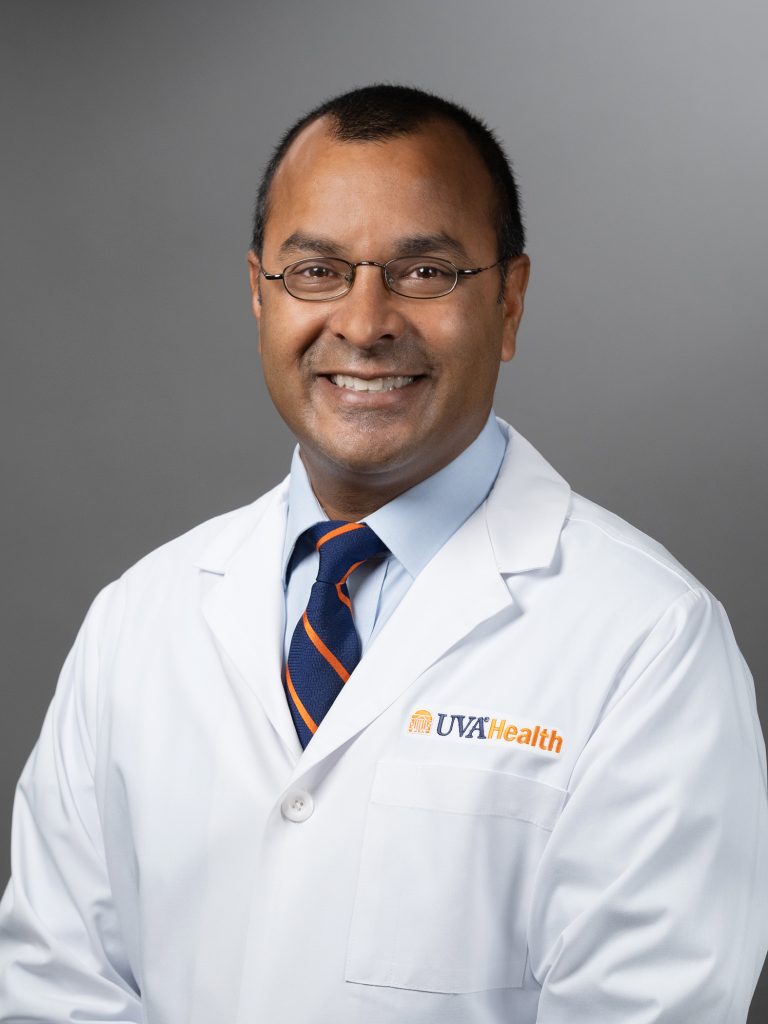
Neeral Shah, MD, of UVA Health, is one of 12 recipients of the Virginia State Council of Higher Education’s 2025 Outstanding Awards.
Neeral Shah, MD, of UVA Health, is one of 12 recipients of the Virginia State Council of Higher Education’s 2025 Outstanding Awards for faculty “who exemplify the highest standards in teaching, of scholarship and service.”
Shah’s passion for learning and teaching came from his parents, who immigrated to the United States from India with just two suitcases and $8.
“Their philosophy was, ‘Knowledge is something no one can ever take away from you,’ a belief they deeply instilled in me,” he said.
During his 15 years at the University of Virginia, where he is a professor of medicine in the Gastrointestinal/Hepatology Division, Shah has used his knowledge and skills to care for patients, research ways to improve care and train thousands of future doctors and healthcare providers. suppliers.
As a gastroenterologist and digestive health specialist, Shah has performed thousands of colonoscopies and now specializes in liver disease, caring for patients with chronic liver disease and those requiring liver transplants.
As a researcher, Shah helped develop a better way to care for patients with liver disease and bleeding problems. Shah’s innovative work and collaboration with biomedical engineers led to a grant from the National Institutes of Health and the eventual creation of the Quantra Hemosonics machine, widely adopted by anesthesiologists to best utilize blood products during patient care .
As an educator, Shah played a key role in creating the UVA School of Medicine’s NxGen pre-clerkship medical education program, which prepares students to become lifelong learners and provide Patient-centered, evidence-based medical care. He won every major teaching award at UVA while developing a series of medical education infographics now used in 98% of U.S. medical schools and in 70 countries around the world.
Katie Webb, MD, a graduate of the UVA School of Medicine, described Shah in a letter of recommendation as a teacher committed not only to providing excellent medical education, but also to connecting with his students and patients .
“In a room of over 100 people, he took the time to make each of us feel valued. He asked our names, inquired about our weekend activities, and got to know not only our academic interests but also our interests outside of school,” Webb wrote. “During the last week of the (gastrointestinal course), we had the opportunity to see Dr. Shah interview one of his patients. …The patient praised Dr. Shah for his time in their care, explaining the disease process in terms they could understand, exploring treatment options in the broader context of lifestyle and patient’s wishes and being compassionate but frank in discussing results and prognosis. This interaction with patients made me realize that Dr. Shah is not only an educator who will do anything for his students, he is also a clinician who will do anything for his patients.


